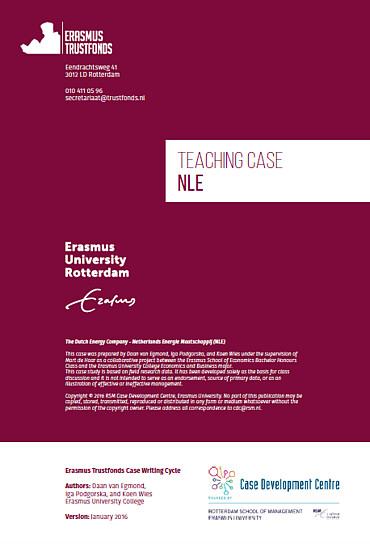Abstract
This case illustrates the investment decision the Nederlandse Energie Maatschappij (NLE), a utilities company offering electricity and gas, was facing. Was it going to invest in a smart-home as value-added service or not? And if so, would it invest in the development of an own product or would a partner be a more suitable option? The case explains the history of the company, its founders and current CEOs. It also explains how the company has adopted a more flexible, flat corporate culture in a market primarily dominated by large bureaucratic organizations with a large overhead. Using expertise in sales and marketing, the CEOs of NLE have adopted several strategies to achieve growth in the past. Moreover, as they have a background in econometrics, they come to terms with the importance of data. Yet, with changing customer behavior and a market with unclear future the company set out an experiment. They concluded that they had the option to invest in a value-added service that could put them ahead of the competition. However, it meant investing in a product that NLE had never offered nor produced before.
Citation Note
Based on field research; 10 pages.
Follow the 'handle' link to access the Case Study on RePub.
For EUR staff members: the Teaching Note is available on request, you can contact us at rsm.nl/cdc/contact/
For external users: follow the link to purchase the Case Study and the Teaching Note.
Objective
1. Explore how a company can stay flexible during growth and prepared for changes in the market, yet not losing its efficiency. 2. Gain insight on how core competences can be used to diversify the company’s portfolio. 3. Create a deeper understanding of how to identify opportunities in a liberalized changing market. 4. Analyzing NLE’s marketing in relation to its organizational culture.
